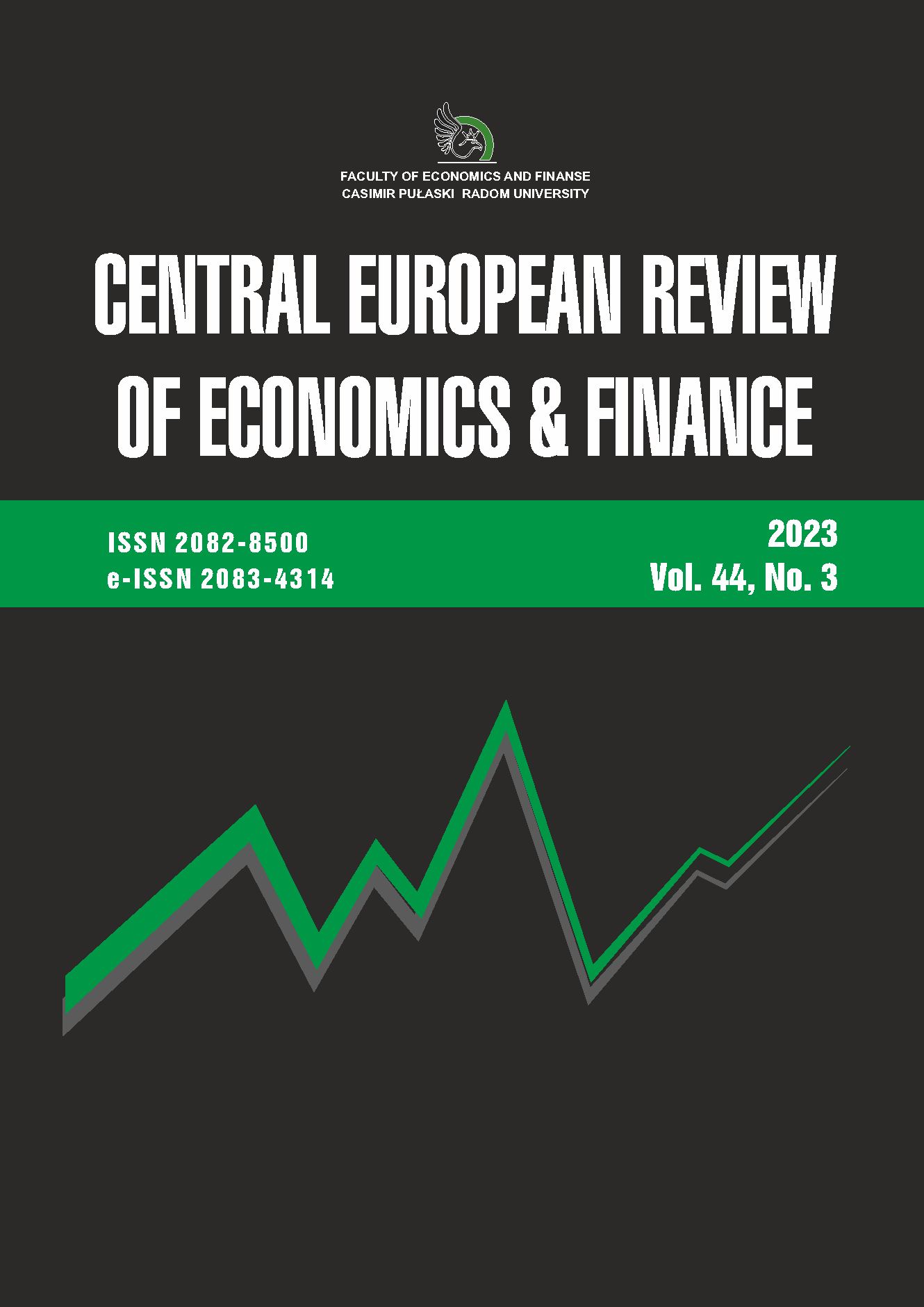G–7 and BRICS countries in global value chains
DOI:
https://doi.org/10.24136/ceref.2023.013Keywords:
global value chains (GVCs), trade in value-added (TiVA), internationalization, fragmentationAbstract
G–7 and BRICS countries play important roles in the world economy and global politics. The aim of the article is to answer the research question: “How participation of G–7 and BRICS countries in global value chains has been changing since 1995?”. To answer this question global value chains participation indexes were calculated. They were derived from Inter-Country Input-Output Tables. The value-added of this study stems from employing Input-Output Tables delivered by two institutions (Organization for Economic Co-operation and Development and Asian Development Bank). Consequently, article presents indexes calculated on the basis of two datasets. Combining two databases enabled to conduct study for quite long period (1995–2022). Analyzing the changes of global value chains participation indexes of G–7 and BRICS countries, we can distinguish following phases of internationalization: period of rapid globalization (1995–2008), global crisis and economic rebound (2009–2011), period of slowbalization somewhat strengthened by coronacrisis (2012–2020), and another recovery (2021–2022). This finding lead us to the conclusion that fast internationalization came to a halt in 2008 and since global financial crisis globalization has been quite slow despite some periods of recovery. Thus, there is an implication for more detailed research on slowbalization – its grounds, tendencies and prospects (whether fast internationalization is possible in the future; what is the role of economic policy in stimulating the pace of globalization).
Downloads
References
ADB MRIO. Retrieved on September 15, 2023, from https://kidb.adb.org/mrio.
Aiyar, S., Ilyina, A. (2023). Charting Globalization’s Turn to Slowbalization After Global Financial Crisis. Retrieved on October 20, 2023 from https://www.imf.org/en/Blogs/Articles/2023/02/08/charting-globalizations-turn-to-slowbalization-after-global-financial-crisis.
Černá, I., Éltető, A., Folfas, P., Kuźnar, A., Křenková, E., Minárik, M., Przeździecka, E., Szalavetz, A., Túry, G.,& Zábojnik, S. (2022). GVCs in Central Europe. A Perspective of the Automotive Sector after COVID-19. Bratislava: Vydavateľstvo Ekonóm.
Folfas, P., Odrobina, A. (2020). Slowbalization – Evidence of a Slowdown in Internationalization. Education Excellence and Innovation Management through Vision 2020: from Regional Development Sustainability to Global Economic Growth held : Proceedings of the 36th International Business Information Management Conference (IBIMA).
Garcia-Herrero, A. (2022). Slowbalization in the Context of US-China Decoupling, Intereconomics. Review of European Economic Policy, 57(6), 352–358.
Kano, L., Tsang, E. W. K.,& Yeung, W. H. (2020). Global Value Chains: A Review of the Multi-disciplinary Literature, Journal of International Business Studies, 51(5), 577–622.
Koopman, R., Powers, W., Wang, Z., & Wei, S.-J. (2010). Give Credit Where Credit Is Due: Tracing Value Added in Global Production Chains, National Bureau of Economic Research Working Paper, 16426, 1–58.
OECD (2022). Guide to OECD Trade in Value Added (TiVA) Indicators, 2022 edition. OECD, Directorate for Science, Technology and Innovation. Retrieved on October 5, 2023, from https://stats.oecd.org/fileview2.aspx?IDFile=afa5c684-c31d-49dd-87db-6fd674f29a43.
OECD ICIO Tables. Retrieved on September 15, 2023, from https://www.oecd.org/industry/ind/inter-country-input-output-tables.htm.
PWC (2020). Predictions for 2020: ‘Slowbalization’ Is the New Globalization. PWC. Retrieved on October 20, 2023 from https://www.pwc.com/gx/en/issues/economy/global-economy-watch/predictions-2020.html.
The Economist (2019). Slowbalization. A New Pattern of World Commerce Is Becoming Clearer – as Are its Costs, The Economist, 430 (9127), 11.
Downloads
Published
How to Cite
Issue
Section
License

This work is licensed under a Creative Commons Attribution-NonCommercial-NoDerivatives 4.0 International License.



